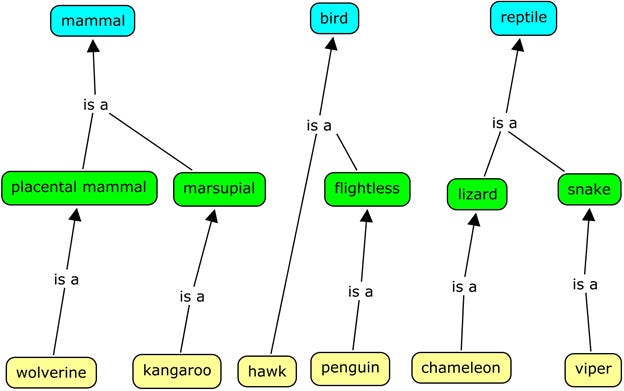Seeing it Differently, Part 2: What All Versions of the DSM Get Wrong
There is something very different about how autistics communicate and interact with other people. There is something very different about how they interpret other people's behavior. But it's not that they lack some nigh-perfect, almost magical sounding mind-reading ability that everyone else has. When experimenters have assessed how much neurotypicals actually know about others' mental states, they typically reach about 30-40% accuracy, and even the best are only 60% accurate--not much above chance. So if you tell me neurotypicals have a "mind-reading module," I will laugh at you.
You can find fuller discussion of this issue in earlier posts, which argue that:
social failure in autism reflects attention-shifting and sensory-processing difficulties;
neurotypicals can "read each other's minds" often enough to get by because of the accident that their minds all work so similarly; autistics can't do this because their minds work too differently; they lack "common ground"
Neurotypicals don't actually understand other people all that well either
social success involves a large normative and culturally relative aspect
Social success isn't even a skill that is measurable and located in a single person
It's not clear whether there are any social abilities that exist across all human cultures; in other words, the ability to understand other people and succeed socially may not be one universal ability, it may be many things in different cultures.
Similarly, there is something very different about how autistics react to novel and familiar things. There is something very different about their preference for, and reliance on, repetition and routines. But it's not that they're rigid while everyone else is flexible. Neurotypicals are so inflexible that they insist on their social rituals even when it would jeopardize others' safety.
Neurotypicals misunderstand other people, and inadvertently treat each other badly all the time--often in more damaging ways than autistics do. Neurotypicals can be more rigid than any autistic about the rituals that matter to them.
The difference is that autistics and neurotypicals misunderstand other people in different ways and are inflexible about different things.
Because autistics are in the minority and sometimes lack the ability to explain or advocate for themselves, their way of misunderstanding and being rigid has been pathologized, while neurotypicals' has been ignored.
WARNING: I am about to say something many people will find utterly shocking.
Neurotypicals are not better, kinder, more empathetic, or healthier than autistics. They do not understand the world more accurately, either.
Sure, they excel at various skills that challenge autistics, such as multitasking, dealing with loud noise, or making a good impression on other neurotypicals. But then, autistics excel at certain skills that challenge neurotypicals, such as high-level spatial reasoning, noticing sensory details, or remembering large amounts of information perfectly. If autistics were in the majority, neurotypicals would be considered to have disordered memories, sensory processing, and reasoning. I think neither deficit perspective is correct: whether either a neurotypical or an autistic functions well depends on whether their abilities let them do what they want to do or what their environment requires of them.

Currently, much of the research on autism starts with the assumption not only that autistics misunderstand others and are rigid, but that neurotypicals have the skills that autistics lack. Because of this misunderstanding, they will come up with faulty explanations. Worse still, they'll develop therapies that don't work, because they're trying to teach autistics to do things that even most neurotypicals can't do. (No wonder ABA practitioners complain that autistic patients who seem to have learned skills choose not to transfer them, despite endless hours of training).
I think we do need research on the nature, neural basis, and genetics of autistics' disabilities, not just their strengths. But as long as we hold some idealized view of these abilities as they appear in neurotypicals, we won't understand what it is autistics can't do. We shouldn't be trying to figure out why autistics lack skills everyone else has. We should be trying to figure out, given that everyone lacks these skills, what exactly they do differently--and why.




